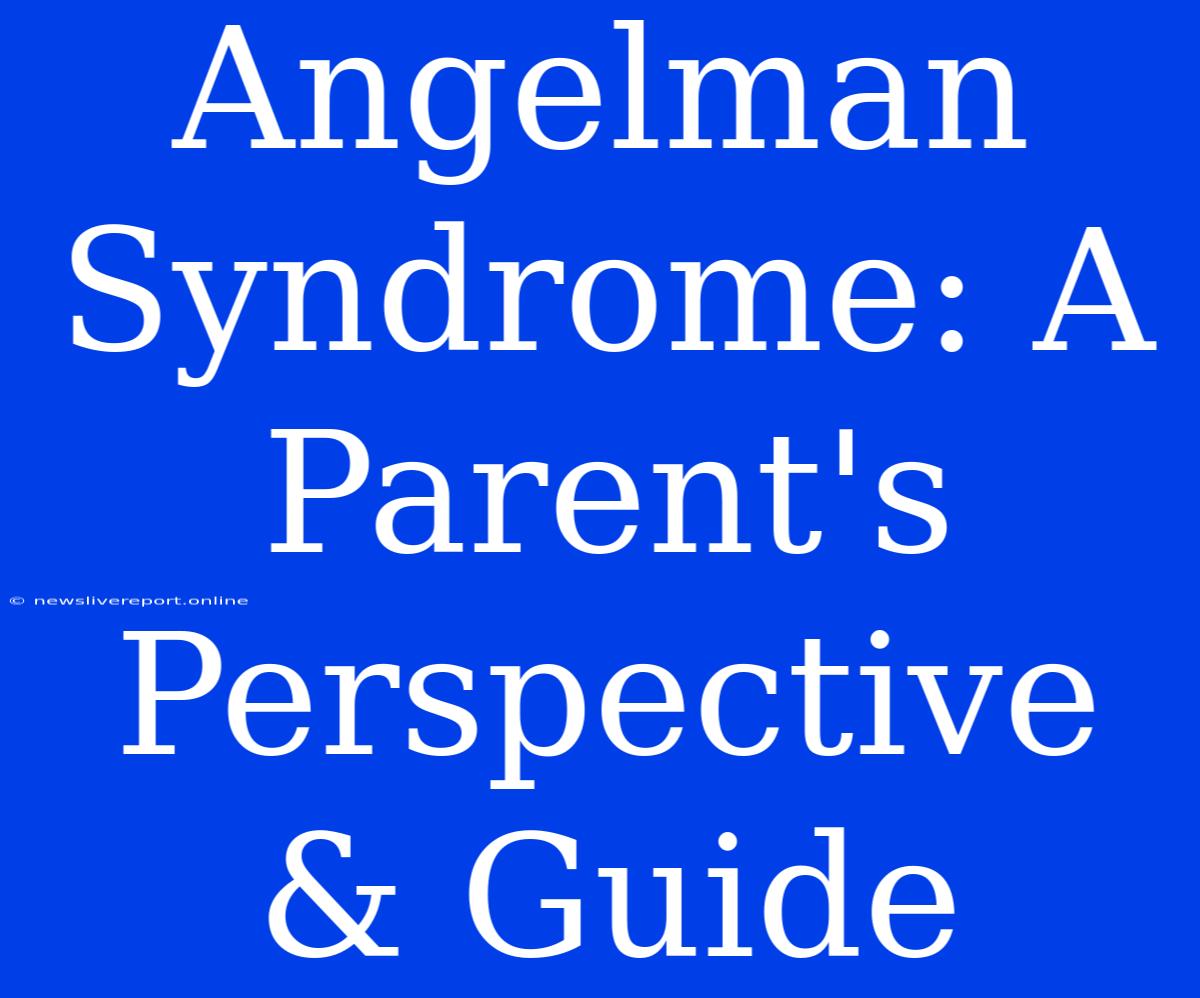Angelman Syndrome: A Parent's Perspective & Guide
Angelman Syndrome (AS) is a rare neurodevelopmental disorder that affects a child's ability to learn, speak, and move. It's caused by a missing or inactive gene on chromosome 15, and while there is no cure, there are treatments and therapies that can help improve quality of life.
This article offers a glimpse into the world of Angelman Syndrome through the eyes of parents and provides a guide for families navigating this challenging journey.
A Parent's Perspective
"Living with Angelman Syndrome is like living in a world full of sunshine and laughter, but with a sprinkle of rain and wind."
This is how one parent described the experience. Angelman Syndrome children are known for their happy, energetic personalities and infectious laughter. They often have a distinctive gait and arm flapping, which are endearing characteristics. However, they face unique challenges with communication, cognitive skills, and motor abilities.
Here are some common experiences parents share:
- Delayed development: Children with AS often experience significant delays in speech, walking, and other developmental milestones.
- Communication challenges: While some children with AS can learn to speak, many rely on alternative forms of communication like sign language, picture exchange systems (PECS), or assistive technology.
- Seizures: Many children with AS experience seizures, which can range from mild to severe.
- Sleep disturbances: Sleep disturbances are common in children with AS.
- Behavioral issues: While AS children are often happy and friendly, they may exhibit repetitive behaviors, hyperactivity, and difficulty with social interaction.
The Journey:
Raising a child with Angelman Syndrome is a journey of love, resilience, and adaptation. It's a journey filled with ups and downs, triumphs and challenges. Parents must navigate a complex web of medical appointments, therapies, and educational planning. They also face the emotional challenge of accepting their child's unique abilities and differences, while advocating for their needs and ensuring they have the best possible quality of life.
A Guide for Families
Diagnosis and Support:
- Early diagnosis: It's crucial to seek early diagnosis from a specialist. Early intervention and therapy can make a significant difference in a child's development.
- Support groups: Connecting with other families living with AS is invaluable. Support groups provide a sense of community, shared understanding, and practical advice.
- Advocacy: Advocate for your child's needs, ensuring they receive appropriate education, therapy, and access to resources.
Treatment and Therapies:
- Therapy: Occupational therapy, physical therapy, speech therapy, and behavioral therapy are essential for helping children with AS reach their full potential.
- Medication: Medication may be prescribed to manage seizures and behavioral challenges.
- Assistive technology: Assistive devices like communication aids, adaptive equipment, and assistive technology can help children with AS communicate, learn, and participate more fully in their world.
Living with Angelman Syndrome:
- Focus on strengths: Celebrate your child's unique abilities and strengths. Encourage their interests and provide opportunities for them to thrive.
- Celebrate successes: Acknowledge and celebrate every milestone, no matter how small.
- Create a supportive environment: Provide a loving and structured environment that promotes independence and growth.
- Connect with others: Don't be afraid to reach out to family, friends, and support groups for help and encouragement.
The Future of Angelman Syndrome:
Research is ongoing to find a cure for Angelman Syndrome. Genetic therapies and other promising treatment options are under development. There is hope for a brighter future for children living with AS.
This article is intended to be a general guide. It's crucial to consult with healthcare professionals and specialists for personalized advice and support tailored to your child's individual needs.
By understanding Angelman Syndrome, advocating for your child, and seeking support, you can empower your child to live a fulfilling and meaningful life. The journey may be challenging, but the rewards are immeasurable.

